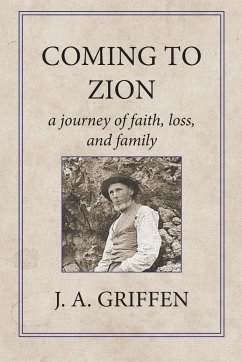
MICHIGAN'S CROSSROADS TO FREEDOM
The Underground Railroad in Jackson County
Versandkostenfrei!
Versandfertig in 1-2 Wochen
19,99 €
inkl. MwSt.

PAYBACK Punkte
10 °P sammeln!
In the early to mid-1800s, Jackson County was home to two branches of the Underground Railroad, a secret network that funneled fugitives from slavery in the South to freedom in the North. Many Jacksonians participated in this network, risking their lives to feed, lodge and transport fugitives passing through their county to Canada, where slavery was outlawed. Local agents included a preacher who was almost lynched, an editor whose office was fire bombed and a farmer whose property was raided by an armed posse. Where did these brave residents live and work? What were their secret methods of ope...
In the early to mid-1800s, Jackson County was home to two branches of the Underground Railroad, a secret network that funneled fugitives from slavery in the South to freedom in the North. Many Jacksonians participated in this network, risking their lives to feed, lodge and transport fugitives passing through their county to Canada, where slavery was outlawed. Local agents included a preacher who was almost lynched, an editor whose office was fire bombed and a farmer whose property was raided by an armed posse. Where did these brave residents live and work? What were their secret methods of operation? What were their motives? MICHIGAN’S CROSSROADS TO FREEDOM will answer those questions and open a window into the personal lives of those profiled, enlivened by first-person accounts. It also will describe the diversity of agents within the local system and identify landmarks connected to the anti-slavery movement. While the exact identities of all the enslaved Americans who stepped foot on Jackson’s soil will never be known, this book pays tribute to them, as well. These ingenious men and women successfully evaded slave catchers, braved the elements, persevered through hunger and thirst and exhibited great courage under fire. Not only do they serve as inspiration, they are a powerful reminder that Underground Railroad agents only assisted what resourceful African Americans instigated. While most fugitives passed through Jackson County on their way to Detroit and Canada, a few chose to remain here. Their identities also will be discussed. MICHIGAN’S CROSSROADS TO FREEDOM describes other local milestones as well, including the 1854 anti-slavery convention that gave rise to a national political party; the origin of Michigan’s first anti-slavery newspaper, American Freeman; and the strategic importance of Jackson’s train station, originally built in 1841. This book is not intended to present a comprehensive list of all the agents within Jackson County; but to offer a sampling of the diverse agents within its network and to shed light on their personalities and motivations. Their sacrifices point to a higher moral ground that lifts humanity above the shifting sands of culture, time and passing fads. Their stories are a potent reminder of how men and women of all color can come together for a cause bigger than the sum of their differences. No story illustrates this more than that of Rev. William Sullivan and the fugitive who sought refuge in his Jackson home, Lewis Hill. Hill, enslaved as "Joseph Mallory," had no idea that the details of his 1,000 mile trek from Augusta, Ga., would be immortalized in notes kept by another conductor who corresponded with Rev. Sullivan. In fact, when the enslaved American slipped off the Augusta farm under the cover of darkness in 1838, he wasn’t even sure if he would survive. His story is told in Chapter One.














